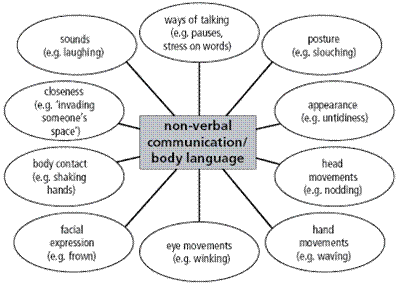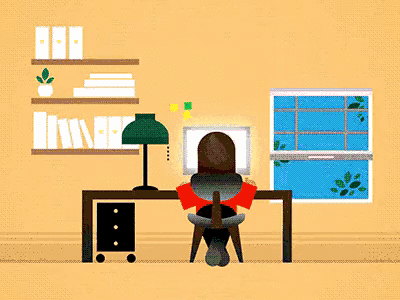Communication Decoded- I
Introduction
to Basics of Communication
“The art of communication is the language of
leadership”
-James Humes
Being able to communicate effectively is one of the most important life skills to learn. Communication Is defined as transferring
information to produce a greater understanding. It can be done vocally (through
verbal exchanges), through written media (books, websites, and magazines),
visually (using graphs, charts, and maps) or non-verbally (body language,
gestures, pitch of voice, and tone).
Soft Skills that
is vital for a successful Career and Life.
The
Importance of Communication Skills
Having strong communication skills aids in all aspects of
life – from professional life to
personal life and everything that falls in between. From a business position
standpoint, all transactions result from communication. Good communication
skills are essential to allow others and yourself to understand information
more accurately and quickly and explain more efficiently.
In contrast, poor communication skills lead to frequent
misunderstanding, missed opportunities and frustration
In a recent survey 2020, Deloitte found that communication skills are the most important quality of an aspirational candidate/leader/employee:
Here’s a list of the most critical traits for a leader to possess,
according to survey respondents:
- Communication skills 71%
- Hardworking 68%
- Flexible 58%
- Confident 58%
- Patient 53%
- Assertive 27%
- Resilient 27%
- Independent 18%
- Authoritative 16%
- Proud 14%
Types of Communication
· Intra-personal Communication: communication with self. One thinks and introspects
· Interpersonal: direct, face to face communication between two persons
· Group communication: interaction with a number of people in order to share information, develop ideas, make decisions, solve problems, amusement
· Public communication: persuasion of audience to hold certain attitudes, values, or beliefs, so that they think, believe or act in a certain way
· Non verbal communication: includes- facial expressions, eye contact, body language, gestures, proximity, touch personal appearance.
· Mass communication: includes tools such as, books, internet, cinema, television, radio , newspaper etc.
How to Improve Your Communication Skills
1.
Listening
To become a good communicator, it is important to be a good
listener. It is important to practice active listening – pay close attention to what others are saying
and clarify ambiguities by rephrasing their questions for greater
understanding.
2.
Conciseness
Convey your message in as few words as possible. Do not use
filler words and get straight to the point. Rambling will cause the listener to
tune out or be unsure of what you are talking about. Avoid speaking excessively
and do not use words that may confuse the audience.
3.
Body language
It is important to practice good body language, use eye
contact, utilize hand gestures, and watch the tone of the voice when
communicating with others. A relaxed body stance with a friendly tone will aid
in making you look approachable by
others.
1) Your movement and gestures convincing your thoughts.
2)
Another person’s actions and movements showing meaning to your thoughts.
A further in depth analysis on body language shall be done in the coming series for communication decoded
Eye contact is
important in communication – look the person in the eye to indicate that you
are focused on the conversation. But make sure to not stare at the person as it
can make him or her uncomfortable.
4.
Confidence
Be confident in what you say and in your communication interactions with others. Being confident can be as easy as maintaining eye contact, maintaining a relaxed body stance, and talking with concision. Try not to make statements sound like questions and avoid trying to sound aggressive or demeaning.
5.
Open-mindedness
In situations where you disagree with what someone else has to say, whether it be with an employer, a co-worker, or a friend, it is important to sympathize with their point of view rather than simply try to get your message across. Respect the opinion of others and never resort to demeaning those who do not agree with you.
6.
Respect
Respecting what others have to say and acknowledging them is an important aspect of communication. Being
respectful can be as simple as paying attention to what they have to say, using
the person’s name, and not being distracted. By respecting others, the other
person will feel appreciated, which will lead to a more honest and productive
conversation.
7.
Using the correct medium
There are several different forms of communication to use –
it is important to choose the right one. For example, communicating in person
about serious matters (layoffs, salary changes, etc.) is more appropriate than
sending an email regarding the matter.
Forms
of communication
Non verbal Communication
Barriers to Effective Communication
Miscommunication:
It is a ruined form
of communication. What is to be communicated does not get communicated and an
obstructed form of the message is transmitted, There is always some sort of
barriers that hinders the effectiveness of communication. You must be aware of
such communication barriers so that it becomes easier for you to identify them
and do your best to eliminate them.
Here are the most common communication barriers that you will come across as a professional:
1. Cultural
& Language Difference
This barrier is
common in organizations where people from different backgrounds and cultures
work together. Also, there are likely to be language differences among people
which is likely to widen the communication gap.
The best way to
overcome this barrier is to respect the
culture of other people and try to find common grounds for making the interaction possible.
2. Judging Others
Being judgemental is
never good when you expect positive results from a conversation. When you judge
a person while communicating, you are focusing more on criticizing them and
reaching for their weaknesses instead of trying to understand what he/she is
saying.
When you are
discussing something important with an individual, you need to keep your
personal differences aside and give your best to get on the same page. Judging
others is only going to derail your communication and it will lead to nothing
but a waste of time and energy.

3. Lack of
Enthusiasm
Communication can
never be effective if you do not believe
in the information that you are sharing. Showing a lack of energy while
interacting with someone can put a negative impact on them. Delivering your
messages in a dull tone with no variation in facial expressions will disengage
the people you are interacting with.
You can eradicate
this communication barrier by developing
an interest in the information that you want to share. Also, you need to be
more confident and ensure that your
voice tone doesn’t sound uninspiring.

4. Physical
Barriers
The physical
environment also has a major impact on the effectiveness of communication.
Noisy background, bad hearing, speech impairments, etc. can affect the delivery
of the information.
While most physical barriers like background noise can be mitigated easily, other issues such as speech impairments, etc. demand special attention..
To Conclude
Communication is an
imperative part of our lives. And when it comes to advancing in your
professional career and life quality, you need to be good at communication.
- Ar. Devanshi Choksi
(Asst. Prof. TSAP, B.Voc)
(For any details contact us)
Website: www.tsapmumbai.in
E-mail: tsap@thakureducation.org
Contact: 022-67308001/02




















Comments
Post a Comment